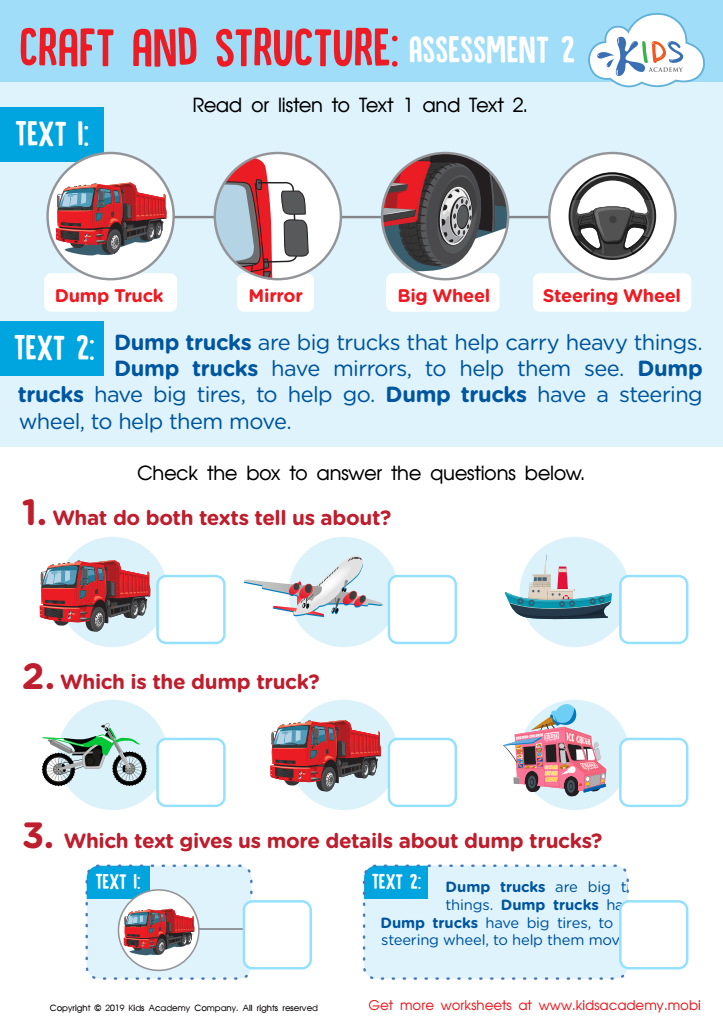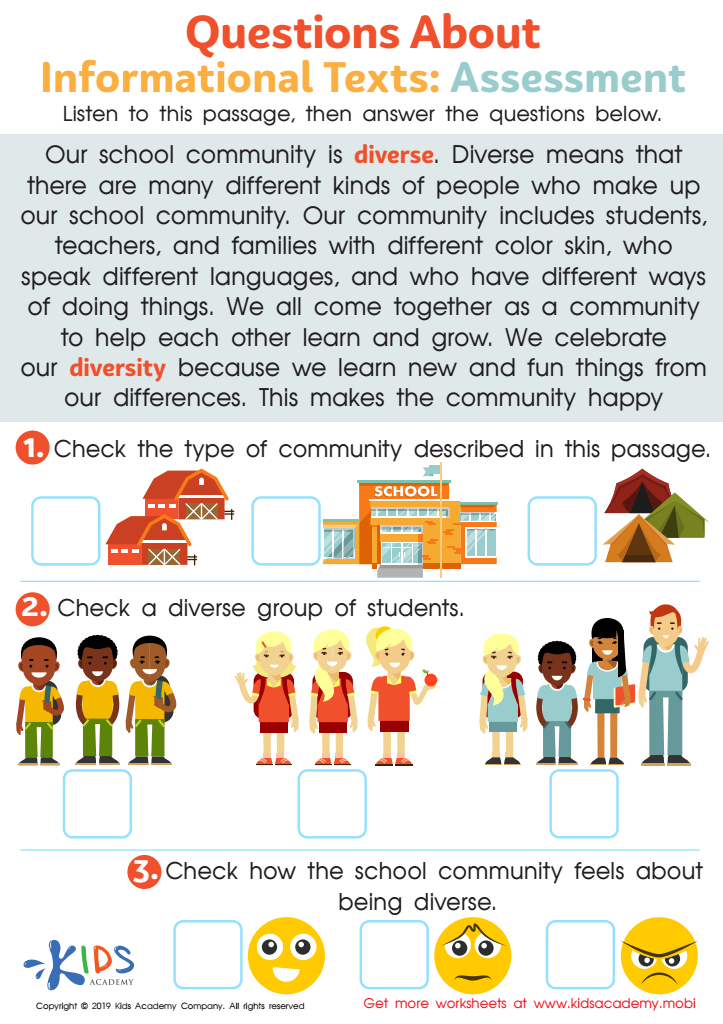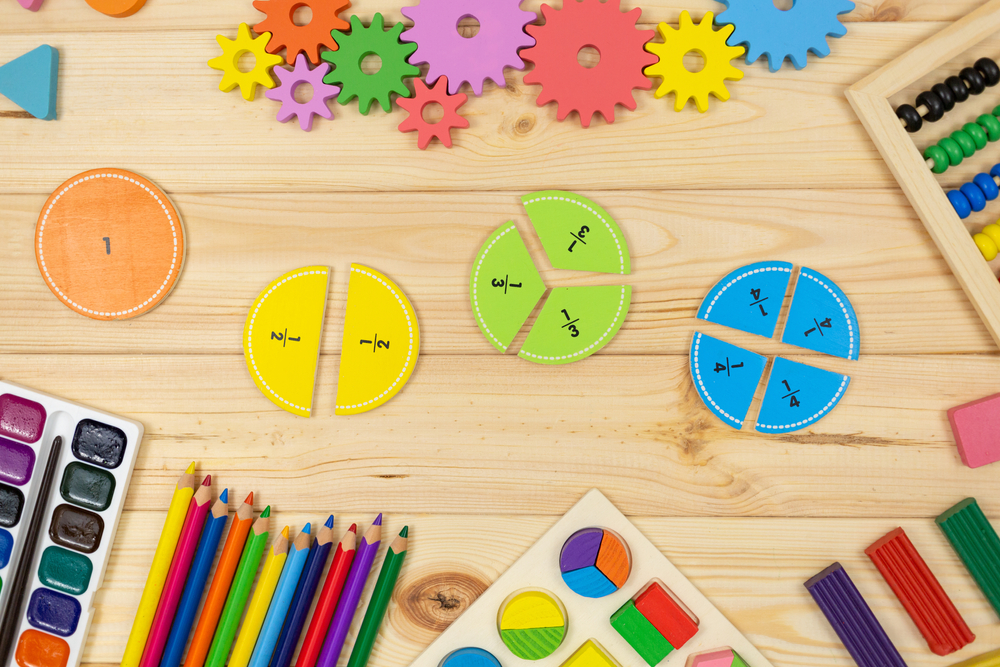Reading Non-Fiction worksheets activities for Ages 4-6
2 filtered results
-
From - To


Craft and Structure: Assessment 2 Worksheet


Questions About Informational Texts: Assessment 1 Worksheet
Reading Non-Fiction worksheets activities are an invaluable resource for students of all ages, serving as a bridge between the abstract concepts often found in non-fiction texts and the tangible understanding required to grasp them fully. These activities are designed to sharpen critical thinking, enhance comprehension skills, and foster an appreciation for the diverse range of topics and genres that non-fiction encompasses.
One of the primary reasons why Reading Non-Fiction worksheets activities are so beneficial is their ability to break down complex information into more manageable sections. By doing so, students are not only able to retain information more effectively but are also encouraged to engage with the material on a deeper level. These worksheets often include questions that prompt analysis, discussion, and reflection, encouraging learners to connect with the text personally and contextually.
Moreover, Reading Non-Fiction worksheets activities facilitate the development of research and evidence-based reasoning skills. Many worksheets include tasks that require students to cite specific examples from the text to support their answers, thereby reinforcing the importance of using evidence to back up claims. This skill is invaluable, not just in academic settings, but in navigating the vast amount of information encountered in daily life.
Additionally, these activities are instrumental in expanding vocabulary and improving language skills. Non-fiction texts are rich sources of specialized and technical vocabulary related to specific fields of study or interest. Through targeted worksheets, students can encounter and master these new terms, enhancing their language proficiency and subject matter knowledge simultaneously.
Lastly, Reading Non-Fiction worksheets activities are versatile tools that can be adapted to suit various learning styles and levels. Whether used in a classroom setting, homeschool curriculum, or as part of self-directed learning, these worksheets offer a structured yet flexible approach to exploring non-fiction content. They are an essential component in cultivating a well-rounded, informed, and critically thinking individual, ready to navigate the complexities of the modern world.

 Assign to the classroom
Assign to the classroom











